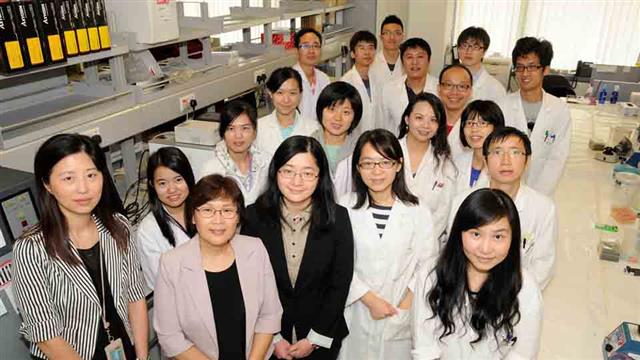Mutations of the gene encoding cystic fibrosis transmembrane conductance regulator (CFTR) are known to cause cystic fibrosis and epidemiological studies have shown that patients with cystic fibrosis often develop diabetes but the underlying reasons have been poorly understood.
Led by Prof. Chan Hsiao-chang, Li Ka Shing Professor of Physiology and director of the Epithelial Cell Biology Research Centre at CUHK, a recent study reveals a previously unrecognized contribution of an anion channel CFTR to the function of pancreatic β-cells. It demonstrates an important role of CFTR in insulin secretion and explains why patients with cystic fibrosis often develop diabetes.
The research further demonstrates that an experimental drug for the treatment of cystic fibrosis restores normal function of β-cells with this mutation, suggesting a potential treatment strategy for cystic fibrosis associated diabetes.
The findings have been published in Nature Communications.
For details, please click here.


